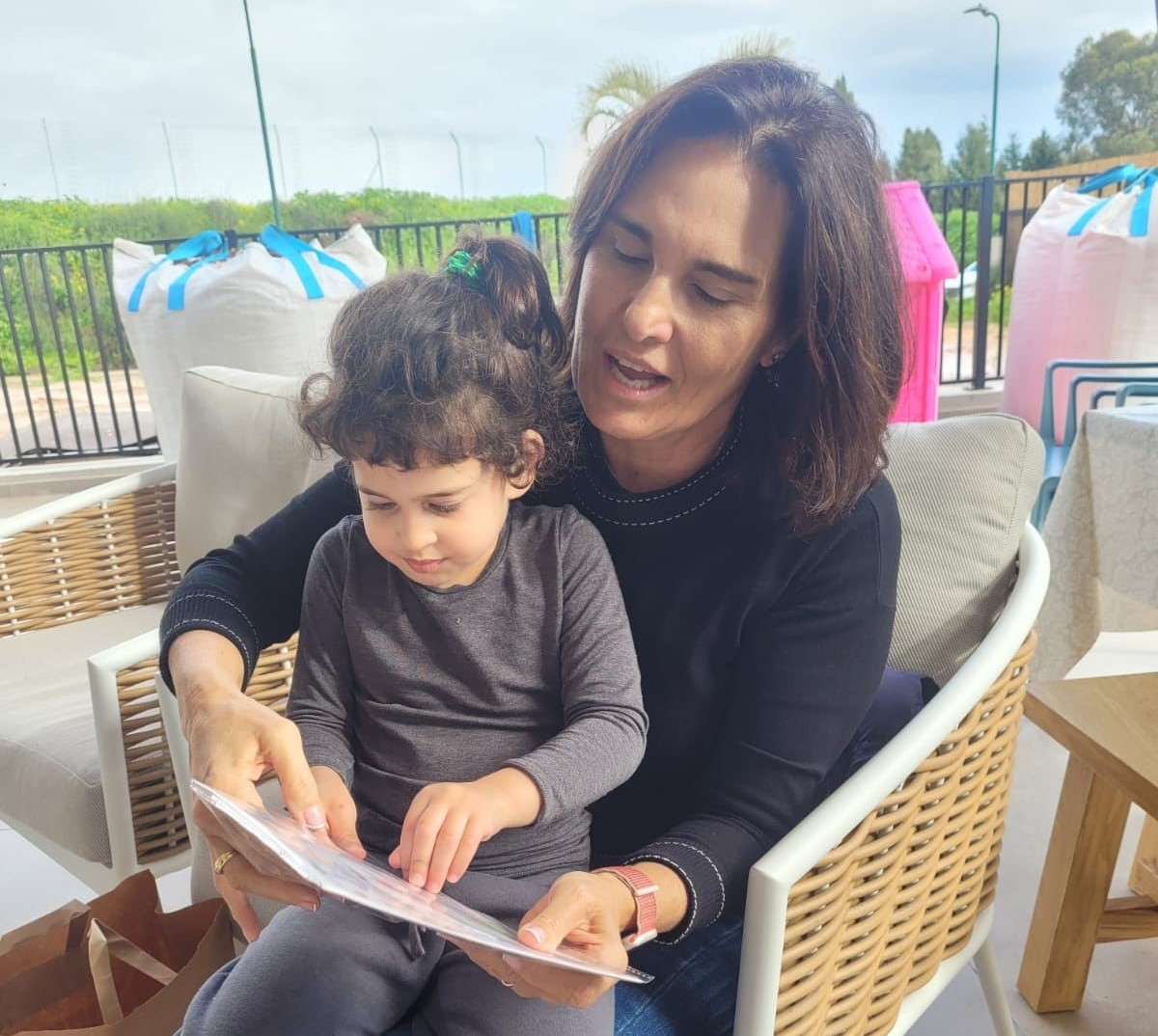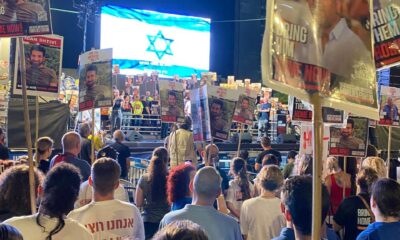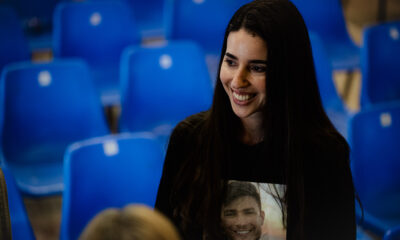
Featured Item

SA expat helped children survive massacre from afar
Arriving at a home in central Israel recently, South African expat Linda Friedland walked towards the covered patio where a little girl was playing. It was raining, almost like tears, as Friedland watched the little girl from a distance, feeling utter disbelief. The child was Avigail Idan, who was orphaned and kidnapped on 7 October while her siblings survived by hiding in a cupboard.
Avigail, who is called “Gooli” by her family, is the niece of Friedland’s own niece, Ella Mor. After about 50 days in captivity, she was returned by Hamas in a deal with Israel on Sunday, 26 November, two days after she turned four.
Avigail’s mother, Smadar, who was murdered on 7 October, is Mor’s sister-in-law. Mor’s husband, Nimi Mor, grew up on kibbutz Kfar Aza, along with their extended family.
Now, it’s the survivors of this family that have wrapped Avigail and her siblings, Micha’el and Amalia, in a cocoon of safety as they start a new life without their ima and aba, far away from the only home they’ve ever known.
“Watching Avigail from afar, I felt shocked. It was like I couldn’t fathom what this little girl has been through,” says Friedland, who has wanted to come to Israel since the early hours of 7 October, when her niece, Mor, called her screaming, saying that Micha’el had phoned her to say that both his parents, Smadar and Roee, were dead, and he didn’t know where his baby sister was.
Friedland has since discovered that in the early hours of the massacre, when so little was known, she played a role in helping Micha’el and Amalia survive. She says that after Mor called her, she did all she could to help from Perth, Australia. It felt like a long shot, but she called a good friend, Peter Kash, who at that moment was in Dubai and who has many contacts in Israel. He then contacted a woman in Israel high up in Israel, who in turn contacted director of the Friends of United Hatzalah, Linor Attias. It was Linor who ensured that Micha’el, hiding in a cupboard and talking on his dead mother’s phone, was contacted by social worker Tamar Schlesinger.
It was Schlesinger who stayed on the phone with Micha’el and his sister for 14 hours, essentially saving their lives. “If it wasn’t for her, they probably would have come out the cupboard after a couple of hours and may have been killed by the terrorists, who came back twice,” says Friedland.
Now, on her trip to Israel, Friedland was able to have long conversations with those who were part of the “seven-phone-call chain” as she calls it, from Mor in Holon, to her in Perth, to Kash in Dubai, to the team in Israel who saved the Idan children. She was also able to see the children and support her niece. The Idan children’s other aunt, Liron, has legally adopted them, and they now have three other siblings.
“Seeing Avigail from afar was almost more dramatic than when she was sitting on my lap,” says Friedland, returning to that moment. “This is the child who crawled out from under her dad’s body covered in blood, ran to the neighbours, and was kidnapped from there. She was held with the neighbours in a back room of a terrorist’s house in Gaza.”
When it comes to the elder two siblings, “You can just see the pain in their eyes,” says Friedland. “Their cousin, who is now their new brother, told me matter-of-factly that ‘I’m lucky, because at least my parents weren’t murdered.’ Yet he also went through the horrors of 7 October and has been displaced from his home. Just seeing the impact of that day on this one family, you get a sense of the enormity of it all.”
Friedland says she sensed the huge amount of grief and yet the incredible sense of unity in Israel from the moment she stepped off the plane. “In the terminal at Ben Gurion, you see these life-sized pictures of the hostages, and it felt so much closer,” she says. When her luggage didn’t arrive for three days, she shrugged it off, with the reality around her dwarfing her own personal concerns.
“The grief, anguish, and anxiety are contrasted with defiant optimism,” she says. “In a way, it felt like a relief, from facing the onslaught of antisemitism on the outside to coming to Israel, where everyone knows this is an existential war. The slogan everyone is repeating is, ‘Beyachad nenatsayach’ [Together we’ll win].”
Friedland also visited “Hostage Square” in Tel Aviv and even met former hostages. “It just brought home how these are ordinary people. And you saw how each hostage that’s still held captive has at least five family members awaiting their return. The scale of the loss and terror is brutal. You just hear them shouting ‘Achshav! [Now!]’ in desperation.”
At first, Friedland felt unsure about visiting the sites of the massacre in the Gaza envelope, but then realised that it was vital to bear witness. “We won’t see the raw nature of it again. It was like going to Auschwitz two months after the war, knowing there was still DNA and body parts, contrasted with the greenery all around as the area blooms in winter.”
She visited one kibbutz that wasn’t completely decimated, and the juxtaposition between the burned, obliterated houses with intact homes was startling. “You still see spices on the counter, the sukkah still up in the yard, and the candle sticks from Shabbat. It’s like people are still living there.” She heard about one woman and her husband, artists and peace activists, who had welcomed Gazans in their home to do art, and had helped transport them to doctors. Both were brutally killed and burned.
She found visiting the site of the Nova festival harrowing – seeing so many young faces memorialised there, and the enormity of how many were killed. “Festivals in Israel have always been known as safe spaces for women,” she notes, pointing out that this principle was literally decimated as Hamas terrorists invaded.
Ultimately, her trip reminded her of the “resilience of the Jewish people, preserved in our DNA”. She saw this in the Idan children and their extended family, in the Israelis she met, and in the extensive fundraising and humanitarian work in every part of Israel, which she has contributed to through various projects.
Her latest initiative is to help expectant mothers who are now war widows. “We’ve been through massacres and emerged from the ashes, and we’ll do so again here,” she says. “What other alternative do we have?”










